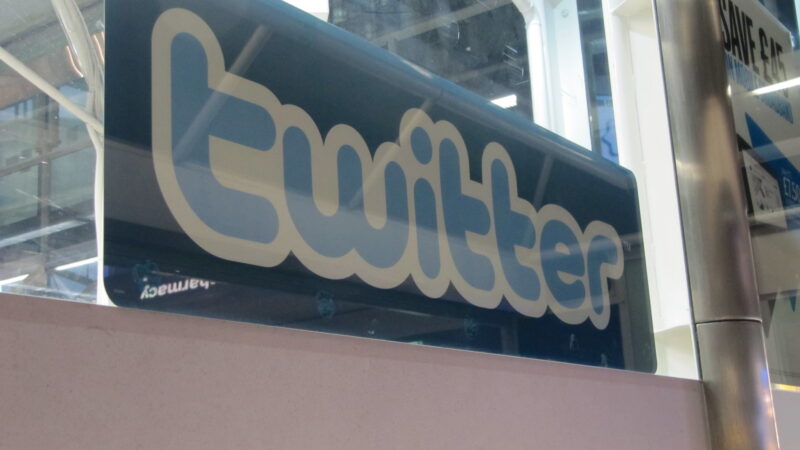Twitter and publicness

Danny Yadron in The Guardian today wrote a piece entitled “Why do normal people struggle with Twitter?” that, via a conversation with Mathieu, drove me to write this piece. For Yadron’s alludes to an issue that has not been afforded much attention during Twitter’s current woes – namely the very publicness of Twitter.
I’ve been aware for a long time that something that is normal for me – standing up and speaking in public to a crowd of 15, 150 or even 1500 people – is not at all normal for the vast majority of the population. I spoke up as a child in school, as a student fees protestor at university, and in political work and in my career since then. I can’t quite pinpoint how this started (my parents are teachers, so that might have something to do with it), so I am not being smug here – it’s just normal. There are other things that are normal for the vast majority of the population that scare me – we’re all different.
I also was doing these public speeches before Twitter existed, and indeed even before this blog started back in 2005. In fact one of the reasons I started this blog was because a previous role – as President of JEF-Europe – was coming to an end, so I blogged about things rather than speaking at conferences organised by JEF.
This, I think, schooled me well in the power, and also the responsibility, of having some kind of public or quasi public role.
The Twitter users quoted in Yadron’s article, and people I encounter in my training courses, find Twitter’s publicness confusing and scary. Who am I talking to? they ask me. And what about Twitter’s privacy policy? they go on. Well, I reply, pretty much everything except DMs on Twitter is public – that is normally met with ashen faces.
Put another way, Facebook feels quasi-private, more intimate, and – because of the real names policy – somehow more predictable. You know who you are talking to and, because you know them offline, you can tick them off if they troll or attack you. On Twitter, who are these people with the odd usernames and strange avatars actually?
Then there are those – like Alphonso Pines mentioned in Yadron’s piece – who want a public role on the network, but cannot find an audience. Yet Pines has tweeted less than 500 times, and this on a network as crowded and busy as Twitter, it takes time to find your niche and to build your audience. Pines might be trusted in Atlanta’s union community, but how can Twitter users know if his tweets are worthwhile? Only time and perserverance can deliver this (you might be famous for five minutes on Twitter, but don’t count on that). It has taken me 74000 tweets to build an audience of just over 16000 followers – this slowness somehow feels at odds with the instant gratification reputation of social media, but it is logical and inevitable if you think about it. Pines would have needed years of working to be trusted as a union leader – the same trust building is going to be needed on a public network like Twitter as well.
One of the first descriptions of Twitter I was given right back at the start is that Facebook is for the people you know, but Twitter is for the people you would like to know. Which brings me right back to the discussion with Mathieu (@slasherfun) on Twitter that provoked this blog entry.
Mathieu is the sort of person I’d never have met without Twitter, but with a common interest in tech and railways, we found common cause in 140 characters and subsequently met (for lunch in Paris one time when I was passing there), and we could have talked for hours. Mathieu was confident he would find like minded people on the very public Twitter, and by being friendly, helpful and engaging, he achieved that. I’ve done the same numerous times – I think I have something that’s worth saying in public, and Twitter helps me find people who share those interests. But fostering that takes time, takes care, takes determination, and requires awareness of what broadcasting in public means. Without that Twitter would just be shouting into the ether – and that’s perhaps why so many people struggle with it.
I think you hit the nail on the head, Jon, with your observation that Mathieu was “friendly, helpful and engaging” on Twitter. The willingness to engage in conversation with people one has never met is key for having a great experience. Nice post as always.
I think you really nailed it this time. Yadron’s analysis is pretty good but you summed up the key points of his piece, which is righteously called “Why NORMAL people struggle with Twitter.”
Because it’s not, and it has almost never been, for normal people. Audience building is a bitch, and this is actually what draws the line between those who want to REALLY work on their public image, campaign, profile on this network and those who don’t. Audience building is tough on all networks due to content saturation and competition among influencers, but NORMAL people (in Yadron’s sense) struggle understanding the value of Twitter’s publicness. On the other hand, since its opening, Twitter has found no solution to prevent the inevitable content saturation we now witness, which is why growth is in stalemate. Why would you open an account now in a market that’s already saturated?